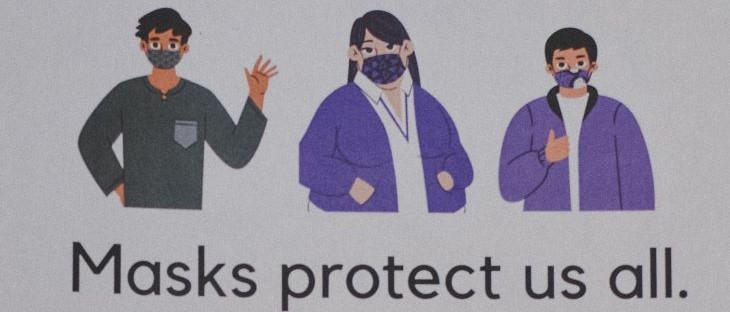Our Meeting has been asked to endorse the following call to action, which was initiated by a group of 18 Friends who were concerned about threats to our democracy. Before endorsing it, we ask that Members and Attenders read the text, ponder the queries, and contemplate the suggested actions. Other resources related to the project can be found here.
An Urgent Call to the Religious Society of Friends
May 2022
We Quakers, members of the Religious Society of Friends, hold strongly to the principle of speaking truth with integrity. We ground our speaking truth in our worship and our searching of ourselves, as we listen deeply and honestly within and across all differences. Our testimony to the world includes standing up for spiritually discerned Truth, the equality of all persons, the peaceful resolution of conflicts, and respect and care for our neighbors and the earth. Right now, we see many forces at work in our country and the world that are undermining these basic values. Accordingly, we call on Friends everywhere to act.
In this country, in 2020, we witnessed an attempted coup. The January 6 assault on the Capitol was a deliberate, violent attempt to prevent Joe Biden — the clear winner of the 2020 election — from taking office and keeping then-president Donald Trump in power. To maintain that the last election was riddled with fraud is demonstrably false. This politically motivated movement has now embarked on an orchestrated campaign to suppress voting by black, brown and young people and to pass new state election laws giving the power to throw out huge numbers of valid ballots to highly partisan legislatures, governors, and state attorneys general. Thus, this lie is being used to deprive people of their constitutional rights and constitutes a major injustice.
As Friends, we feel called to speak out against these falsehoods and anti-democratic actions. We encourage Friends to seek spiritual guidance on any actions that you and your meetings might take to witness against this gross injustice. If this politically motivated movement succeeds in its anti-democratic takeover attempt, any hope of making significant progress on racial and economic justice, the equality of all people, the climate crisis, gun violence, and other urgent issues of our time will be gone.
We know that democracy in the United States has many flaws. During the past 100 years, our local, state and federal governments have acted to prevent formerly enslaved people and other communities of color from voting. It was not until 1920 that women finally won the right to vote, and their equality is still being challenged. We call on Friends to act — first, to resist all efforts to undermine our current democratic processes, and second, to support true democratic reforms to our still flawed election system. We cannot allow a government that is built on lies and injustice.
We the undersigned are encouraging Quakers throughout the country to work in their local communities, states, and the national arena to take critical actions to prevent an authoritarian takeover of our democracy. We urge Friends to discern the deep truths that provide a foundation for active love, wisdom, compassion, and a truly democratic electoral system—and then to actively support such changes. We know that love conquers fear. Let us lean into Divine Love and find ways forward in Truth.
Queries
- What, if anything, is the Light Within calling Friends to do in response to the unprecedented rise of domestic extremism, white supremacy, and authoritarianism that is threatening the destruction of our democracy at home and abroad?
- How can I/we respond with resolute love even while I/we may be struggling with fear, anger, apathy, or hate?
Possible Actions
Defending Truth
We urge all Friends to discern the deep truths that provide a foundation for active love, wisdom, compassion, and peace in the world — and then to defend them. We ask:
- Individual Friends to search yourselves about the threats to our country, and the world, and to witness publicly to the truths that you discern are grounded in your experience of the Spirit.
- Quaker meetings and organizations to issue public statements calling out lies and the purveyors of lies, all in the context of our understanding of love, equality, and justice for all. Working for True Equality and Justice for All We urge Friends to act for equality and equity within our diverse society.
Working for True Equality and Justice for All
We urge Friends to act for equality and equity within our diverse society:
- Speak, write, and protest in support for full equality of all people in American society, whatever their racial or sexual identity, gender, or class.
- Support legislative and economic changes that would lead to actual equity among all peoples.
Promoting Free and Fair Elections
Stemming from our testimonies of Integrity and Equality, we urge Friends to:
- Support non-partisan voter-registration drives, particularly in communities under attack from those seeking to prevent them from voting.
- Publicly condemn partisan efforts to restrict access to voting.
- Confront partisan efforts to seize control of the election administration apparatus.
- Support conscientious, non-partisan election officials in our communities.
- Volunteer as poll workers, election monitors, and drivers to get people to the polls.
Preparing for Non-Violent Resistance
We believe that as a religious society grounded in nonviolence, we can:
- Arrange for nonviolent direct-action training in our Quaker meetings and organizations, as well as with others in our larger communities.
- Form small “affinity groups” that can prepare to carry out direct actions in support of free and fair elections and the state and local officials who support them.
- Support wider efforts to plan and organize nonviolent resistance on a state and nationwide level, as needed.
MARIAN BEANE
Charlotte Friends Meeting, Piedmont Friends – Yearly Meeting
and Fellowship
BRUCE BIRCHARD
Central Philadelphia Friends Meeting, Philadelphia Yearly
Meeting, Former General Secretary, Friends General Conference
LAURA BOYCE
Providence Friends Meeting, Philadelphia Yearly Meeting,
Ujima Friends Peace Center
MARTHA BRYANS
Downingtown Friends Meeting, Philadelphia Yearly Meeting
SAM CALDWELL
Providence Friends Meeting, Philadelphia Yearly Meeting,
Former General Secretary, Philadelphia Yearly Meeting
GRETCHEN CASTLE
Doylestown Friends Meeting, Philadelphia Yearly Meeting,
Dean, Earlham School of Religion, Former General Secretary,
Friends World Committee for Consultation World Office
ROBERT DOCKHORN
Green Street Friends Meeting, Philadelphia Yearly Meeting
TOM EWELL
Whidbey Island Friends Meeting, North Pacific Yearly Meeting
EILEEN FLANAGAN
Chestnut Hill Friends Meeting, Philadelphia Yearly Meeting
JOHN HELDING
Lopez Island Friends Meeting, North Pacific Yearly Meeting
AYESHA IMANI
Ujima Friends Meeting, Philadelphia, Clerk, Ujima Friends
Peace Center, Former Clerk of the Fellowship of Friends
of African Descent
PHIL LORD
Ujima Friends Meeting, Chestnut Hill Friends Meeting,
Philadelphia Yearly Meeting
MARY ELLEN MCNISH
Byberry Friends Meeting, Philadelphia Yearly Meeting, Former
General Secretary, American Friends Service Committee
DIANE RANDALL
Hartford Friends Meeting, New England Yearly Meeting,
Sojourning Friends Meeting of Washington, Baltimore Yearly
Meeting, Former General Secretary, Friends Committee on
National Legislation
CHRISTINA REPOLEY
Atlanta Friends Meeting, Southern Appalachian Yearly Meeting
and Association, Founding Director of Quaker Voluntary Service
COLIN SAXTON
North Valley Friends Meeting, Newberg, Oregon
JOE VOLK
Executive Secretary Emeritus, Friends Committee on
National Legislation
MICHAEL WAJDA
Goshen Friends Meeting, Philadelphia Yearly Meeting,
Sojourning Bennington Friends Meeting, New England
Yearly Meeting, Former Associate Secretary, Friends
General Conference
PAM YALLER
Upper Dublin Friends Meeting, Philadelphia Yearly Meeting
Meeting and Organization Affiliations are listed for identification purposes only





